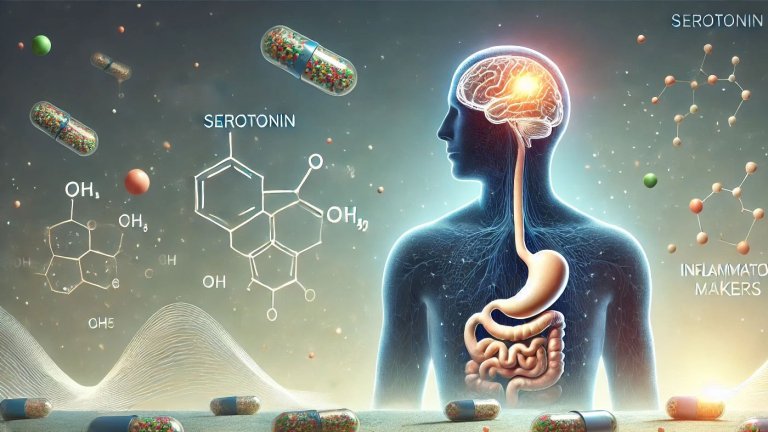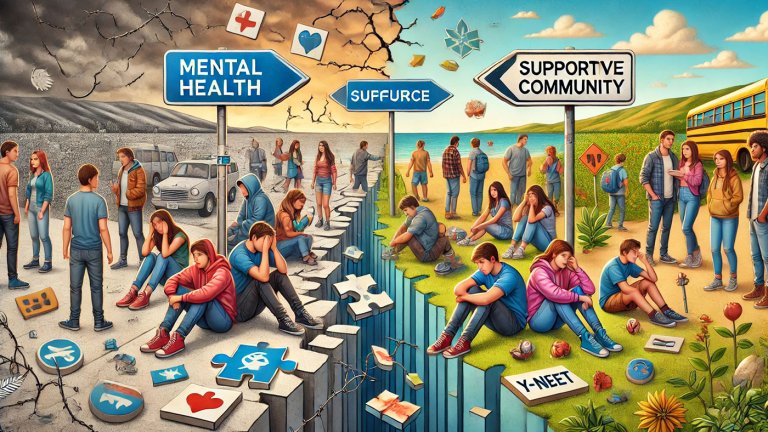Reviving the dying arts of awareness and acceptance
Perhaps the most well-known of renowned psychologist Carl Jung’s realisations was that “no tree, it is said, can grow to heaven unless its roots reach down to hell.” That is to say, that a person can only truly activate and embrace the positive aspects of themselves if they are able to face and communicate with their dark side, their lower urges, their capacity for evil, their propensity to act on impulse and in their own self-interest.
Perhaps the most well-known of renowned psychologist Carl Jung’s realisations was that “no tree, it is said, can grow to heaven unless its roots reach down to hell.” That is to say, that a person can only truly activate and embrace the positive aspects of themselves if they are able to face and communicate with their dark side, their lower urges, their capacity for evil, their propensity to act on impulse and in their own self-interest.
With all the accessibility to others and the constant insight into each other’s lives offered by social media, people are becoming increasingly self-conscious and preoccupied with measuring and evaluating the behaviours of themselves and others. It is not uncommon, when displaying emotion during a contentious online discussion, to be chastised for it. Sometimes this is fair, often it is not. Being frustrated or disdainful, which is an unavoidable component of any difficult discussion, is now something you are likely to be criticised for (despite the fact that the person levelling the accusation is almost certainly experiencing similar negative emotions themselves). We have even developed or popularised new words to cater to this new tendency to repress negative emotion. The word “triggered”, for example, was previously used primarily in the context of post-traumatic stress disorder (PTSD) to refer to situations, objects or anything else which may activate (or “trigger”) a sufferer’s PTSD symptoms (anxiety or panic, avoidant behaviours, dissociation, etc.).
Now it is commonly used to invalidate another person’s emotional reaction, to posit it as absurd, extreme and an object of ridicule. While we do all, of course, overreact at times, language like “triggered” is now used so whimsically that it serves as a criticism of virtually any expression of negative emotion. Many people, particularly men, already struggle to properly express certain emotions, such as sadness or grief, and the results of that repression are relatively obvious from perusing the scientific literature on the subject.
Just as the second law of thermodynamics states that energy is neither created or destroyed, but only changes shape, emotions operate in a similar way. When, for example, sadness (or its more worrisome manifestation, depression) is repressed instead of expressed it is not destroyed, it simply searches for another outlet instead. This is why there is an established correlation between repressing softer negative emotions (particularly, but not only among men) like sadness and exhibiting more intense and frequent sharper negative emotions like anger; repressing sadness can transmute it into anger. If you repress sadness continuously over an extended period of time you are bottling it up in a particularly sensitive emotional environment. Imagine you are boiling a pot of water. Boiling water produces a lot of turbulent air, which is why the top of the pot clanks and shakes; air is forcing its way out. Although the top of the pot might be on, because it is not fastened air and heat can still escape. This is a good demonstration of healthy emotional regulation; you have conscious control of yourself (the top of the pot is on) but you are allowing your emotions to be expressed (the air escaping out of the top of the pot). If you were to fasten or weigh-down the top of a bot of water and then boil it, however, the result would be different. For awhile no air or heat would escape from the top of the pot; it can’t, you’re consciously preventing it from happening (emotional repression). After some time, though, the air and heat will blow the top of the pot off, perhaps even explosively, sending the top and a spray of boiling water toward anyone unfortunate enough to be nearby. This is a good demonstration of the result of emotional repression; an eventual burst of fire and brimstone which can negatively affect the people around you as well as yourself. It is common, after such an emotional explosion, to criticise yourself, to be unkind to and insult yourself, to question why you became overwhelmed and lost control of yourself and condemn yourself for doing so. This outburst may be yet another experience you want to avoid thinking about, you might repress the accompanying guilt and/or shame, causing you more and more emotional build up and explosivity in the future.
The good news is that this cycle can be stopped. The first step is awareness; awareness of what you are thinking and feeling when you are thinking and feeling it; awareness of why these thoughts and feelings are present, especially in the context of your own life experiences; and awareness of what you can do about them in the present and the future. The first step on this path is to become aware of these thoughts and feelings. There is a common tendency in modern society to associate goodness with a complete lack of emotions like anger, greed and envy. This mode of thinking is a mistake, it is an attempt to grow your branches heavenward without firmly planting your roots in the deep soil of your lower self. We all experience anger, greed and envy (and all other comparable emotions) to varying degrees. There is nothing about any of these emotional experiences which is condemnable or wrong, they are simply the colours which fill in the outlines provided by our thoughts (and we only have so much control over what we think). Your emotions are essentially by-products of your mind communicating with itself and the external world, they are trying to tell you something and it would be best (for yourself and everyone else) if you listened. The next time you are jealous of or angry at someone in your life ask yourself why that is. Maybe you have some unresolved issues which are begging for your attention (and the production of anger or jealousy is their way of trying to guide your attention their way), or maybe you have something you need to express to the person who evoked the emotion which you have not yet expressed (a form of both repression and avoidance which could build up into explosive anger over time).
Ultimately, experiencing negative emotion is an unavoidable part of being human. The upward path toward understanding and loving oneself is not to pretend otherwise, to squelch or ignore these emotions out of a misguided belief that acknowledging them would make you a bad person, but to look them in the face and ask them what they want from you.
Erecting a façade of pure unadulterated love and positivity which leaves no room for more jagged negative emotions does not make you a better person, it prevents you from becoming one by blinding you to the parts of yourself which are begging for acknowledgement and change. We all have a dark side and we are all allowed to have a dark side; it is an unavoidable aspect of being an imperfect human-being. Has someone close to you done something small which upset you, but which you decided not to address due to its insignificance? Understandable, but what if these seemingly insignificant behaviours happen frequently (without you mentioning them or expressing your needs) and build up inside you, causing resentment and frustration over time? Be mindful of this process and try to get used to gently expressing your negative emotions to those who are entwined with them. Perhaps, however, you believe that your emotional response is unjustified and extreme, that to express it would be a transgression or a sin. What else, then, can you do about it? What is this emotional experience trying to teach you about yourself, others or your environment? Often it is still useful, even when you feel your emotions are unjustified, to discuss them with a third party (even if not the person who evoked the emotions) so that you can better understand them and their meaning (and sometimes you will come to realise that those emotions made more sense than you first thought).
Here it is useful to understand the difference between approval and acceptance. We don’t need to approve of our emotional responses (that is agree with them in total and view them as justified) in order to accept them (acknowledge their existence and our lack of control over them). The same goes for the behaviours of others; people, even those we love, will do or say things which we don’t approve of, but we can accept those statements or actions as a part of them and become at peace with the way things are. Consider perceiving yourself in the same way, like someone imperfect who you love, support and accept in totality, even when you do, think, say or feel things which you don’t approve of. Accept them, nonetheless, as well as yourself. Remember, the first step to changing yourself is to become acutely aware of the thing(s) you want to change. How to effect such change will be the subject of future articles, but sometimes awareness is enough for that change to slowly start taking place on its own.
Be aware, accept every part of yourself, even those things you don’t approve of, and thereby march forward toward more self-awareness and self-love.






